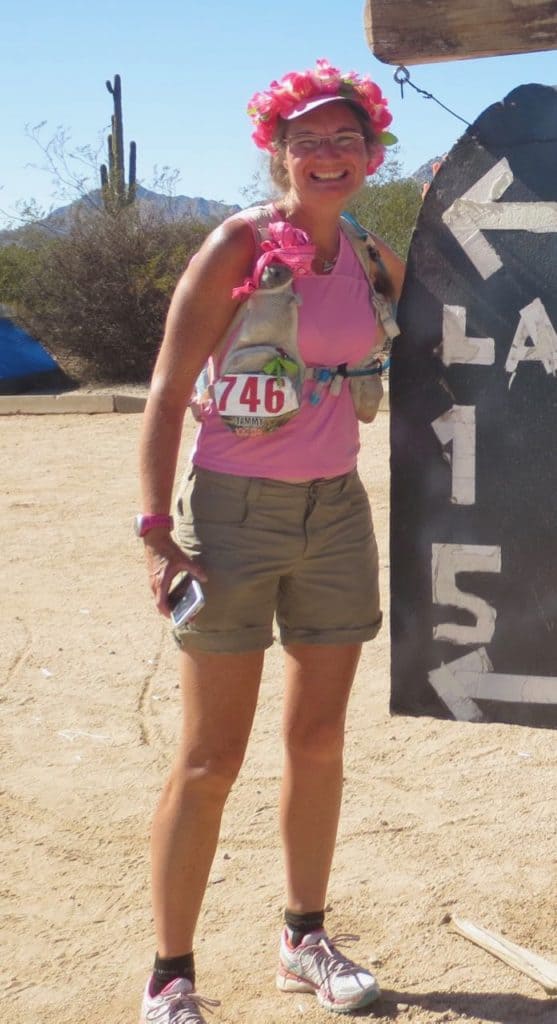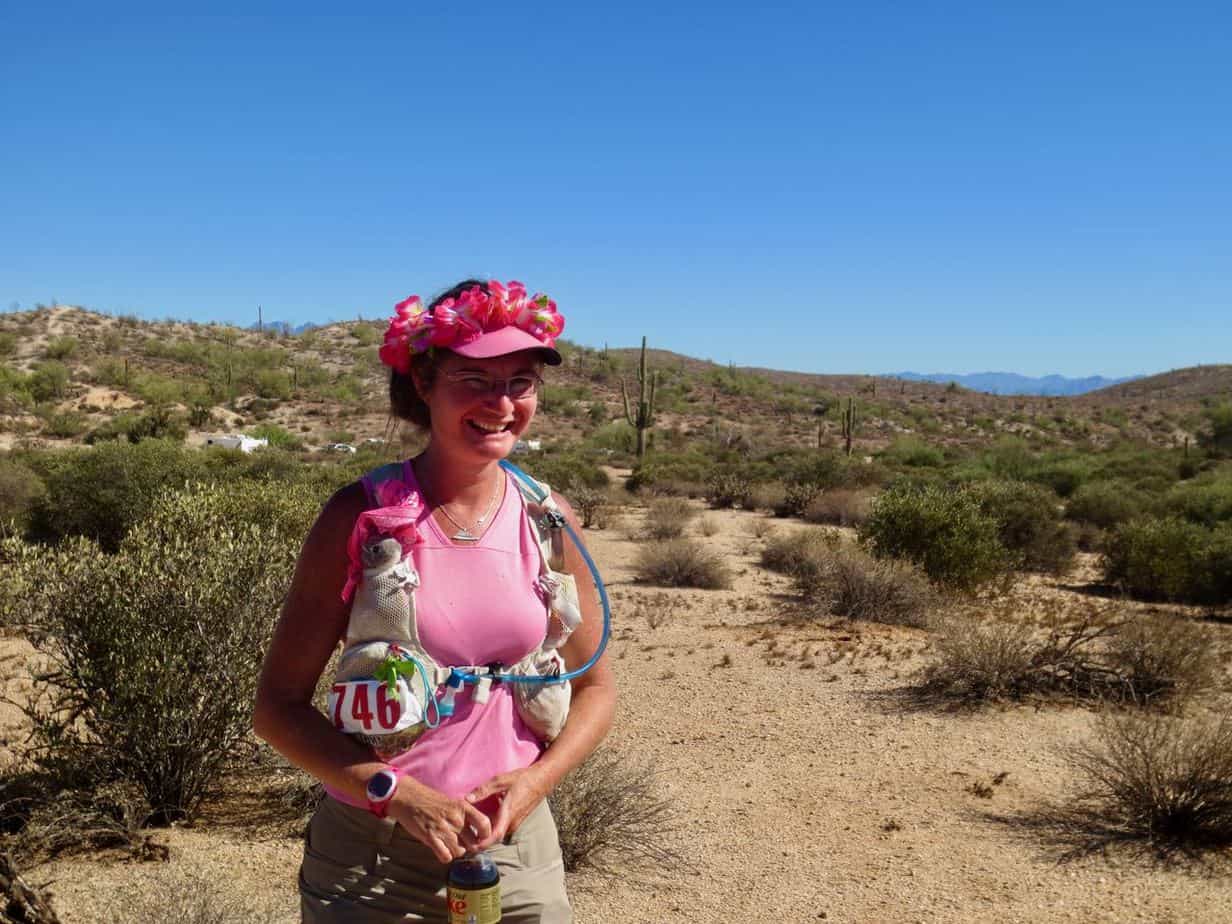You might think that grueling 100 mile foot races through remote wilderness are nothing for people who are easily scared, but you’d be wrong.
A woman who only runs after taking precautions against anything from rattle snakes to serial killers has not only run dozens of iconic ultramarathons but also Badwater, a 135 mile race through America’s Death Valley.
Tammy Massie, a mathematical statistician who earned her Ph.D. in biostatistics, handles fear by preparing for the unknown.
Wearing mostly pink on the trails, with a few flowers and stuffed toys mixed in, I met Tammy as she ran with brightly colored snake-proof gators on a 90 °F day. Yes, she said, they were a bit hot, but better than getting bitten by a rattlesnake.
Tammy also carried pepper spray to deter the potential wayward cougar, and an emergency beacon so that her husband could find her body if she falls off a cliff.
It wasn’t rattle snakes or cougars that finally took her apart during a race though. It was something nobody can control or take precautions against, and it was devastating. Her mother became terminally ill.
Tammy tried to cope through sport, but finally, in the middle of the Vermont 100 Mile ultramarathon, she had enough and broke down. Sitting on a log, all she could do was sob. She was done.
Her mother used to be her cross-country coach and they had bonded over her races. She used to cheer for Tammy at the finish line, but during this race she was in hospital and Tammy didn’t know how to deal with the certainty of losing her.
Recalling all those years together made the tears flow faster, and she couldn’t care less about the time ticking by. She knew she was about to miss the next cut-off and it was irrelevant.
But suddenly, it was exactly this bond, these memories of shared experiences, that shook her up.
“I harnessed my inner self and said, you know what, my mum wouldn’t want me to be sobbing, she’d want me to be out there finishing the race and making her proud.”
She picked herself up and ran for hours to the finish, beating every cut-off along the way.
“I think running helped me. It was a little bit grounding,” she said about training in the months that followed.
“With ultrarunning there is that part of you where you learn what you’re made of, how strong you are, and what adversarial things you can handle and face.”
Running was an opportunity to reminisce about her mother and honor their connection.
 What helped during the darker moments was a sense of gratitude, she said.
What helped during the darker moments was a sense of gratitude, she said.
“What I find helpful is to appreciate the views, appreciate the journey, appreciate the other runners on the course.”
“If you appreciate everything you see, you see the flowers, you see the sunrise, the stars, it really makes it all worthwhile.”
In addition to having done about twenty 100 milers, Tammy has also completed the notorious Badwater race from the lowest point in the continent to, in the old days, Mt. Whitney, although the last big climb is no longer included.
The race is held during the hottest time of the year in July.
“The year I did it, it was about 125 °F, that’s about 50 °C during the hot part of the day.”
Runners diligently stick to the white side strip of the road to avoid the even worse temperatures on the asphalt. Despite the unbearable conditions and many moments of doubt, Tammy persisted and ultimately beat the clock to the finish, after 47 and a half hours on her melting feet.
“You never know what you can do until you put one step in front of the other or go out and set some goal and try to do your hardest,” she said.
“Physical possessions people can steal or destroy or you can lose, but not this sense of accomplishment, that pride.”
Tammy considers running ultra events a privilege because just a few decades ago, women weren’t even allowed to participate in marathons. And whenever she finds herself in a place where doubts threaten to overwhelm her, she remembers all the people who have believed in her throughout her life. People like her mum, her family, her friends.
“If they believed in me, I should believe in myself.”
